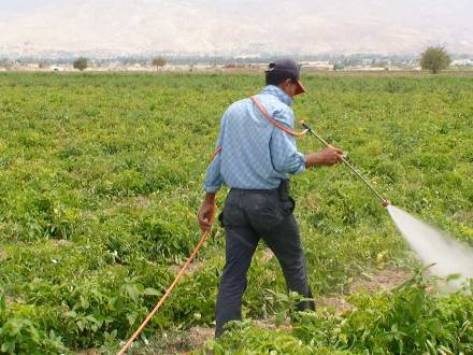- Local News
- Thu-2020-11-26 | 01:08 pm

The Food and Agriculture Organisation of the United Nations in Jordan (FAO) has organised a workshop focusing on the major disasters facing the agricultural sector and food security.
The workshop was under the patronage of HRH Prince Ali, president of the National Centre for Security and Crisis Management, where a number of stakeholders from relevant sectors virtually attended the workshop under the theme: "Good disaster risk management can help prevent and reduce current disaster risks and build the resilience of agriculture and food systems," according to a FAO statement.
FAO, in cooperation with the Ministry of Agriculture and the National Centre for Security and Crisis Management, celebrated the International Day for Disaster Risk Reduction to enhance the global culture of disaster risk reduction, as it provides an opportunity to review the progress and efforts made in preventing and reducing disaster risks and for building resilience across sectors including in agriculture and food systems, as outlined in the Sendai Framework.
The main objectives of the workshop are: Exchanging good practices for disaster risk reduction in agriculture and food systems, the progress made and challenges towards managing disaster risk in an integrated and systematic manner, in addition to drawing up a roadmap to further expand the scope of good practices and measures for disaster risk reduction for resilient and sustainable agricultural and food systems.
Nabil Assaf, FAO Representative in Jordan, said: "The multiple threats to food and nutrition security and their negative cumulative impact, as well as the clear link between shocks and hunger reveals the vulnerability of the current food production systems and their vulnerability to disasters. At FAO, disaster risk reduction is about protecting people’s livelihoods from shocks, and strengthening their capacity to absorb the impact of, and recover from several disruptive events. Disaster risk reduction is a necessary ingredient for food and nutrition security, and for the achievement of the Millennium Development Goal 1.”
On behalf of Prince Ali, Mazen Faraiah, vice president of the National Centre for Security and Crisis Management, said; "Jordan has recently made good efforts in the field of institutionalising response to risks and forecasting them, and this concluded in developing the national strategy for disaster risk reduction and also establishing a private national centre to reduce disaster risk in the Hashemite Kingdom of Jordan.”
"The Ministry of Agriculture calls for monitoring the magnitude of disasters and assessing their consequences to enhance endeavours towards reducing risks, urging individuals, institutions and countries to support these efforts. We also call on national bodies concerned with responding to natural disasters to design national strategies to reduce multi-sectoral disaster risks," said the assistant secretary general for projects at the Agriculture Ministry on behalf of Agriculture Minister Mohammad Daoudiyeh.
The FAO Disaster Risk Reduction for Food and Nutrition Security Framework Programme aims to provide strategic direction to the implementation of disaster risk reduction measures in member countries across the agricultural-related sectors in line with the Hyogo Framework for Action and its five priority areas.
In addition, it promotes an inter-disciplinary and programmatic approach to disaster risk reduction for food and nutrition security, by integrating the agriculture, livestock, fisheries, forestry and natural resource management sectors, to respond more effectively to the diverse livelihoods of small-scale farmers and to the complex set of factors which contribute to disaster risks.









